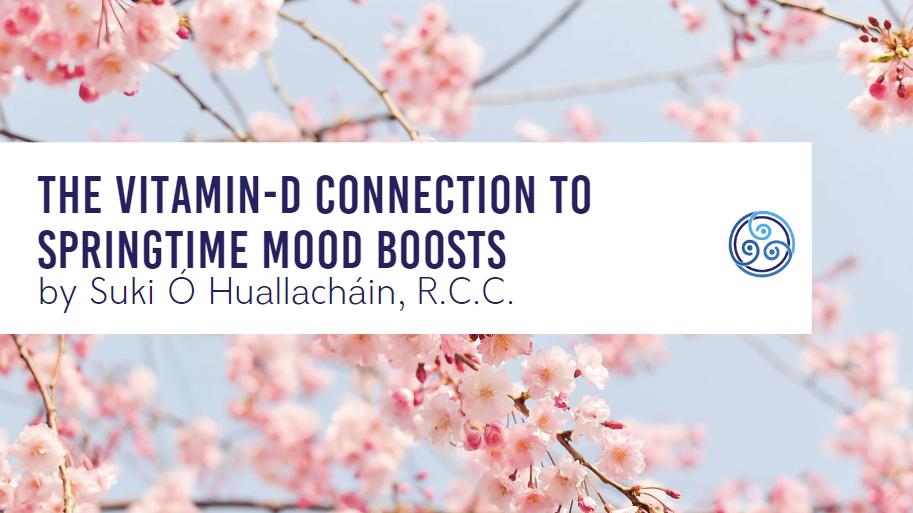As the days grow longer and the sun re-emerges, many of us find ourselves naturally uplifted, and cherishing the longer days. This seasonal shift isn’t just a coincidence; it’s intertwined with our body’s internal mechanisms, particularly the role of vitamin D in regulating our mood.
Vitamin D, often referred to as the “sunshine vitamin,” is a crucial nutrient that plays many roles in our overall health. While its association with bone health, it is also connected to mood regulation as well, especially during the transition from winter to spring.
Exposure to sunlight stimulates the production of serotonin, known as the “feel-good” neurotransmitter. Serotonin plays a key role in regulating mood, promoting feelings of happiness and well-being. When sunlight hits us, it triggers the synthesis of vitamin D, which in turn supports the production of serotonin. As the days lengthen and we spend more time outdoors,our serotonin levels naturally rise, contributing to an uplifted mood and enhanced overall outlook on life.Research has shown a strong association between low levels of vitamin D and mood disorders such as depression and seasonal affective disorder (SAD). During the winter, when sunlight exposure is limited, many people experience a decline in vitamin D levels, which can exacerbate feelings of sadness, lethargy, and even clinical depression.
Our body’s internal clock is linked to our sleep-wake cycle, energy levels, and mood. Exposure to natural sunlight helps regulate our clocks, ensuring that they remain synchronised with the external day-night cycle. Vitamin D plays a role in this regulation, helping to maintain healthy sleep patterns and overall mood stability. As spring brings longer days and increased sunlight exposure, our circadian rhythms receive a boost, promoting better sleep quality and a more balanced mood.
Vitamin D also exhibits anti-inflammatory properties, which can be beneficial for mood regulation. Chronic inflammation has been linked to the development of mood disorders such as depression and anxiety. By modulating inflammatory processes in the body, vitamin D may help reduce the risk of developing these conditions and promote overall emotional resilience. As you step outside to greet the warmer days ahead, remember to soak in the sunshine, knowing that every ray brings with it a dose of vitamin D-infused positivity for your mood and well-being. Just don’t forget that sunscreen!



